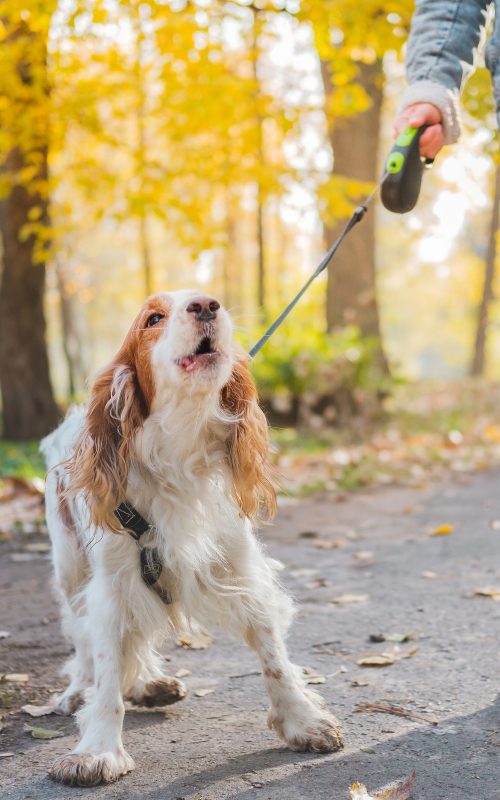From Stressful Walks to Pleasant Strolls: Addressing Leash Reactivity in Dogs
The Problem With Leash Reactivity
Leash reactivity can transform what should be an enjoyable walk into an unpredictable and stressful event. If your dog acts aggressively towards other dogs, people, or vehicles when they’re on a leash, walking becomes an anxiety-ridden task rather than an opportunity for relaxation and exercise.
Our Solution: Personalized Training
Since 2008, we’ve trained nearly 5,000 dogs, many of whom suffered from leash reactivity. This serious problem often tops our clients’ list of concerns. We can honestly say we’ve helped hundreds of people just like you transform these nightmare walks into peaceful strolls.
Uncovering The Causes Of Leash Reactivity
Leash reactivity isn’t a simple issue that can be permanently fixed without understanding its root causes. In our training approach, we identify the correct causes of such problem behaviors. This strategy allows us and you, the dog owner, to not only correct the adverse behavior but also eliminate the causes to ensure permanent improvement.
Customizing Training To Fit Your Needs
At our training center, we customize each training session to match both your lifestyle and your dog’s personality. We aim to build a relationship where your dog listens to you, not out of fear, but respect. The first step in this transformation is scheduling your free in-home consultation, allowing us to understand your situation better.
The Impact of Leash Reactivity
Leash reactive dogs often lead more confined lives due to their unpredictable behavior. They get fewer walks, have fewer chances to socialize with other dogs, and they can sometimes put both themselves and others at risk. The constant need to alter routes or schedules to avoid potential triggers can cause significant stress for you as the owner.
The Freedom of a Non-Reactive Dog
Imagine never having to worry about your dog’s reaction on walks again. Picture enjoyable strolls without needing to plan your route meticulously or avoid certain times of the day. The transformation of a leash reactive dog brings peace for you and your pet. When your dog is no longer reactive, you can take them to more places, and they get to enjoy a fuller life free from non-existing threats.
Schedule Your In-Home Consultation
Start your dog’s transformation today by scheduling your free in-home consultation with us.
Opening Hours
M-Sa: 10am - 7pm
Address
1111 Central Ave., Charlotte, NC 28204
Phone
844 864 3647


